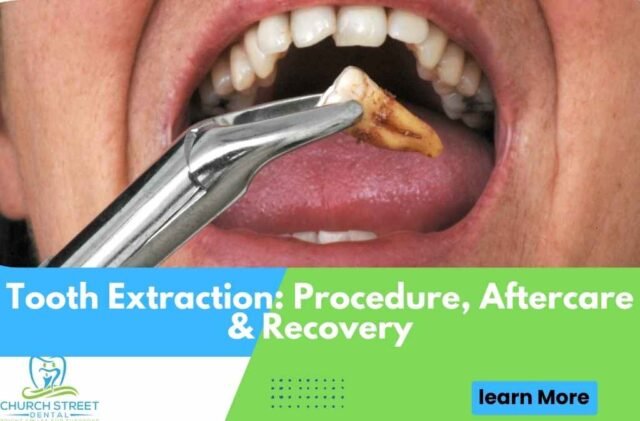Dental implants have revolutionized the way we approach tooth replacement, offering a durable, natural-looking solution that can significantly improve oral health, appearance, and functionality. If you’ve ever wondered what makes dental implants so effective or whether they might be the right choice for you, We will provide an in-depth understanding of the science behind dental implants, their purpose, and the numerous benefits they offer.
What Are Dental Implants?
Dental implants are artificial tooth roots made from biocompatible materials, usually titanium, that are surgically placed into the jawbone to replace missing teeth. Unlike dentures or bridges, which sit on top of the gums, dental implants are designed to integrate with the bone, providing a stable and long-lasting foundation for replacement teeth.
The implants themselves are small metal posts that act as a substitute for natural tooth roots, offering a strong anchor for attaching crowns, bridges, or dentures. This creates a solution that is both functional and aesthetically pleasing, allowing patients to eat, speak, and smile confidently.
Types of Dental Implants
While most people are familiar with dental implants, they may not realize that there are different types of implants available. The two primary types of dental implants are:
Endosteal Implants
Endosteal implants are the most commonly used type of implant. These are placed directly into the jawbone and are usually made of titanium or other materials like zirconia. Once placed, the implant is allowed to heal, during which time the jawbone fuses with the titanium post in a process known as osseointegration. After the healing period, the dentist attaches a crown, bridge, or denture to the implant.
Subperiosteal Implants
Subperiosteal implants are less common and are used when a patient has insufficient bone height or density in the jaw. Rather than being inserted into the bone, subperiosteal implants sit just below the gum line, resting on the jawbone itself. They are typically used in patients who may not be candidates for endosteal implants due to bone loss but still want the benefits of a fixed restoration.
The Science of Osseointegration: How Dental Implants Work
One of the reasons dental implants are so successful is because of the unique biological process called osseointegration. Osseointegration is the process by which the bone tissue in your jaw integrates or fuses with the titanium post of the dental implant. This fusion creates a strong, stable bond that mimics the natural root of a tooth, allowing for optimal function and stability.
The Role of Titanium in Dental Implants
Titanium is the material of choice for dental implants due to its biocompatibility, strength, and ability to bond with bone. Unlike many other metals, titanium is non-reactive and does not cause an immune response in the body. When the titanium implant is placed in the jawbone, it stimulates the bone cells to grow around the implant, forming a strong, stable foundation.
The ability of titanium to bond with bone is a key factor in the success of dental implants. As the bone heals around the implant, it creates a permanent, long-lasting bond, which allows the implant to function just like a natural tooth root.
The Stages of Implant Placement
The process of getting a dental implant typically unfolds over several months and involves the following stages:
Consultation and Planning
The first step in the process is a thorough evaluation by your dentist, including X-rays and possibly 3D imaging, to assess your oral health. Your dentist will check the density of your jawbone, the health of your gums, and determine whether bone grafting or other preparatory treatments are necessary. Your dentist will also discuss your medical history and any concerns you may have.
Surgical Placement
Once your mouth is ready for the implant, the dentist will surgically place the implant into the jawbone. This procedure is typically performed under local anesthesia or sedation to ensure comfort. A small incision is made in the gum tissue, and the implant is carefully positioned into the jawbone. After placement, the gums are stitched up to allow for proper healing.
Healing and Integration
The healing period can take anywhere from three to six months, depending on factors like bone health and the location of the implant. During this time, the bone gradually fuses with the titanium implant, a process known as osseointegration. This step is crucial for the implant’s long-term stability and success.
Attachment of the Restoration
Once osseointegration is complete, your dentist will attach a connector called an abutment to the implant. The abutment serves as the foundation for the replacement tooth. After the abutment is in place, the final restoration (such as a crown, bridge, or denture) is attached to the implant, completing the process.
Each of these stages is important for ensuring the long-term success of the implant, and the entire procedure typically takes several months.
The Purpose of Dental Implants
Dental implants serve several important purposes, especially when compared to traditional tooth replacement options such as dentures and bridges. The primary goal of dental implants is to restore both the appearance and function of missing teeth, but they also provide additional oral health benefits.
Restoring Functionality
Dental implants are designed to restore full functionality to your mouth. Unlike traditional dentures, which can slip, slide, or cause discomfort when speaking or eating, implants provide a stable, permanent solution. Once placed, dental implants allow you to eat, speak, and smile with confidence. You can enjoy your favorite foods without worrying about discomfort or instability, and the strength of the implant allows for better biting and chewing efficiency.
Preventing Bone Loss
One of the most important functions of dental implants is their ability to prevent bone loss. When a tooth is lost, the jawbone in that area can begin to shrink because it no longer receives stimulation from chewing. Dental implants mimic the root structure of a natural tooth, providing the necessary stimulation to the jawbone and preventing it from deteriorating. This helps maintain the structure of your face and overall oral health.
Improving Aesthetic Appearance
Dental implants offer a natural, aesthetically pleasing appearance. Implants are designed to blend seamlessly with your surrounding teeth, creating a smile that looks and feels natural. The crowns or bridges that are placed on the implants are made from high-quality materials such as porcelain, which closely mimics the appearance of natural teeth.
Enhancing Comfort and Confidence
Dental implants are fixed in place, providing a level of comfort and confidence that other tooth replacement options cannot match. Unlike dentures, which can slip and shift in the mouth, implants remain secure, allowing you to speak, eat, and smile with ease. This eliminates the embarrassment or discomfort often associated with traditional dentures, significantly boosting your self-esteem.
Benefits of Dental Implants: Why They’re the Best Option
The numerous advantages of dental implants have made them one of the most sought-after solutions for tooth loss. Here are some of the key benefits of choosing dental implants over other tooth replacement options:
Durability and Longevity
Dental implants are incredibly durable. With proper care, they can last a lifetime. Unlike dental bridges, which need to be replaced every 10 to 15 years, implants offer a long-term solution. While the crown on the implant may eventually need to be replaced due to wear, the implant itself can remain intact and functional for decades.
Improved Oral Health
One of the major benefits of dental implants is that they do not require the alteration of adjacent teeth, unlike dental bridges, which require the reduction of healthy tooth structure to anchor the bridge. Since dental implants are placed directly into the jawbone, they preserve the integrity of surrounding teeth, gums, and bone.
No Slippage or Discomfort
Unlike removable dentures, dental implants do not shift or move in the mouth. Once the implant is fully integrated with the bone, it functions just like a natural tooth root. This means there is no discomfort, no need for adhesives, and no risk of the implant slipping out of place during daily activities like eating or speaking.
Restores Chewing Efficiency
Dental implants restore the ability to chew food efficiently. With traditional dentures, patients may find it difficult to eat certain foods because of discomfort or instability. Implants, however, allow patients to eat all kinds of food with confidence, from crunchy fruits and vegetables to tough meats.
Improved Speech
Missing teeth or ill-fitting dentures can impact speech, causing slurring or difficulty in pronouncing certain words. Dental implants allow for clearer, more natural speech. Since they function like natural teeth, they help restore your ability to pronounce words properly.
Preventing Facial Sagging
Missing teeth can lead to the loss of jawbone, which can, in turn, cause the face to lose its structure. Over time, this can result in a sunken or hollow appearance. Dental implants help preserve the natural contours of your face by stimulating the jawbone, preventing the facial sagging that can accompany tooth loss.
Minimal Maintenance
Dental implants are easy to maintain. After the healing process is complete, they require the same care as your natural teeth. This means regular brushing, flossing, and visits to the dentist for check-ups and cleanings. There is no need for special adhesives or daily removal, as with dentures.
The Cost of Dental Implants: Is It Worth the Investment?
While the initial cost of dental implants may be higher than traditional tooth replacement options, the long-term benefits often make implants a more cost-effective choice. Dental implants are designed to last a lifetime with proper care, while dentures and bridges typically need to be replaced every 5 to 10 years. Over time, the cost of dental implants is offset by their durability and minimal maintenance.
Additionally, dental implants help prevent other oral health issues, such as bone loss and gum recession, which can result from tooth loss. By preserving the health of your jawbone, dental implants may save you from the cost of future procedures, such as bone grafting or treatment for gum disease.
Are You a Good Candidate for Dental Implants?
Not everyone is a good candidate for dental implants. Factors such as overall health, the condition of your jawbone, and your oral hygiene habits all play a role in determining whether dental implants are right for you.
Factors That Affect Candidacy for Dental Implants
- Overall Health: You should be in good general health, as certain medical conditions (like uncontrolled diabetes or heart disease) can interfere with the healing process.
- Bone Density: Sufficient bone density in the jaw is required to support the implant. If you have experienced bone loss, a bone grafting procedure may be needed before you can receive an implant.
- Gum Health: Healthy gums are essential for implant success. Gum disease can increase the risk of implant failure, so addressing any gum issues before proceeding is important.
Your dentist will perform a comprehensive evaluation to determine whether dental implants are a good option for you.
Conclusion
Dental implants are an advanced and reliable solution for replacing missing teeth, offering long-term benefits that can improve your oral health, appearance, and quality of life. If you’re considering dental implants and want to learn more about the procedure or determine whether you’re a good candidate for Dental Implant in Chicopee, MA, Church Street Dental is here to help. Our experienced team offers personalized care to ensure you receive the best treatment possible. Contact Dentist in Chicopee, MA, today to schedule a consultation and begin your journey toward a healthier, more confident smile.






